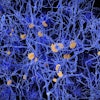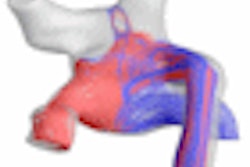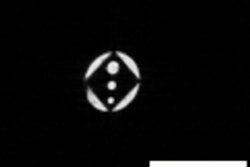Computer-aided kinetic information can help distinguish benign from malignant suspicious breast lesions on MRI, according to a study to be published in the American Journal of Roentgenology (September 2009, Vol. 193:3).
In the study, performed at the University of Washington Medical Center in Seattle, Dr. Constance Lehman and colleagues analyzed and compared the computer-aided evaluation variables of 125 suspicious breast lesions. Three different kinetic curves -- washout, plateau, and persistent -- were compared along with lesion morphology (size and shape).
The researchers found overlap in kinetic patterns across benign and malignant lesions, but the most suspicious curve type, washout, was useful in separating benign from malignant lesions: 45.7% were malignant, compared with 20% for plateau and 13.3% for persistent, Lehman wrote.
Related Reading
Study: MRI may cause more harm than good in breast cancer, August 13, 2009
PET/MRI breast imaging prototype shows early promise, June 16, 2009
Molecular breast imaging offers promise as mammography adjunct, September 15, 2008
Open-source software delivers 3-way (PET/CT/MR) image fusion, April 25, 2008
Fused MRI and PET improve specificity of breast MRI, August 17, 2007
Copyright © 2009 AuntMinnie.com


.fFmgij6Hin.png?auto=compress%2Cformat&fit=crop&h=100&q=70&w=100)





.fFmgij6Hin.png?auto=compress%2Cformat&fit=crop&h=167&q=70&w=250)











